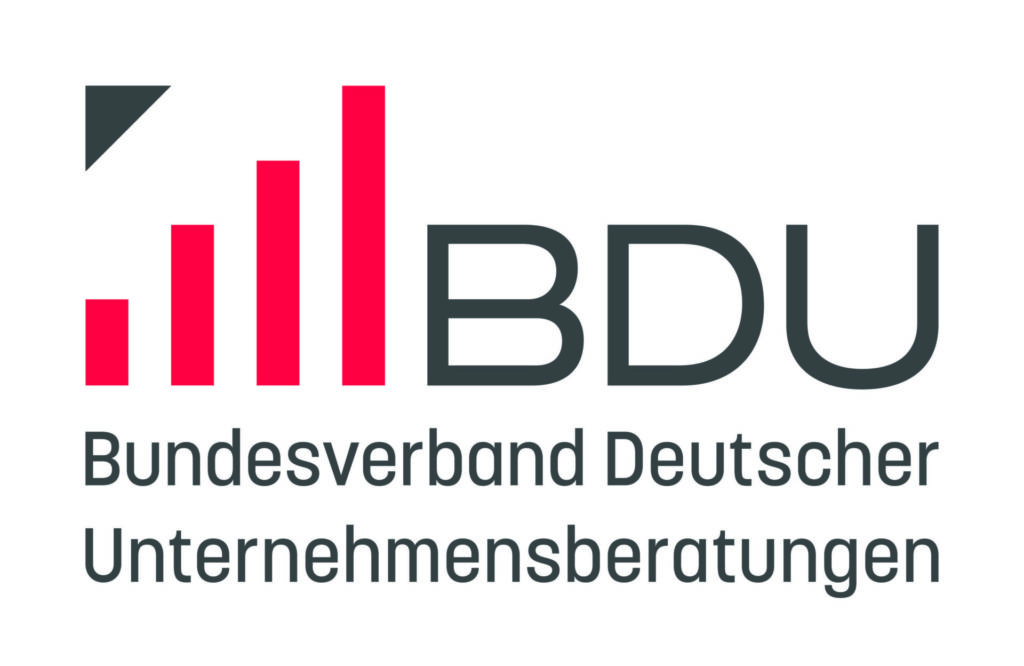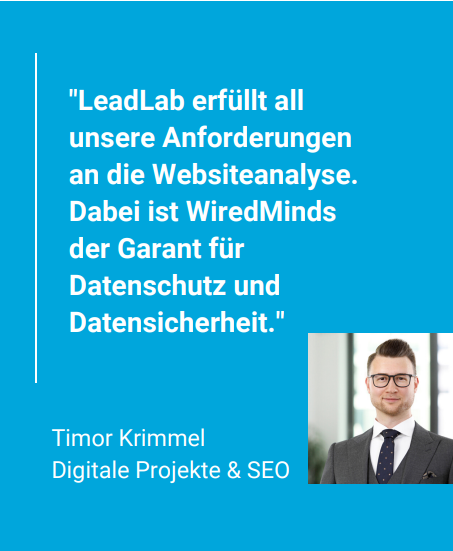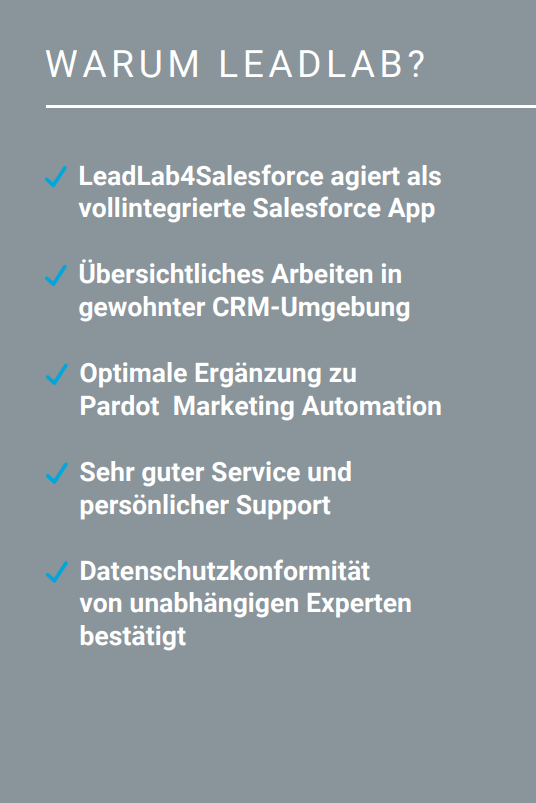BDU achieves a +40% increase in click-through rate and improves the user experience – without the use of cookies
Case Study German Association of Management Consultancies BDU e.V.
BDU achieves a +40% increase in click-through rate and improves the user experience – without the use of cookies

Initial situation
The search for an analysis tool for the BDU website was associated with high requirements. Data protection aspects ruled out the use of common tools such as Google Analytics. The website is mainly visited by members and interested parties. The association does not acquire new customers in the traditional sense.
As the BDU also makes software recommendations, it was important that the tool selected could also offer member companies great added value.
The choice quickly fell on WiredMinds – due to the wide range of analysis options and the high level of data protection.

The company
German Association of Management
Consultancies BDU e. V.
Customer segment: B2B
Employees: 12
Client since: 2014
In conversation: Timor Krimmel,
Digital projects & SEO
The BDU represents the German
Consulting industry with its
nationwide more than
33.8 billion euros in sales and over
150,000 employees
The mission: The continuous improvement of this important sector for the German economy.
service and ensuring the high level of quality of our member companies.
The challenge

- As part of the website optimization, the BDU wanted to better understand website visitors. In addition, insights into the usability, user experience and relevance of the website content were to be gained.
- Another claim of the BDU: Third-party cookies and the associated mandatory queries of the website visitor should be completely avoided in tracking and analysis.
Successes achieved
+40%
increase the click rate
+90%
longer time on site
-80%
decreased bounce rate
10.000
analyzed downloads per year
Implementation
In website analysis, it is particularly important to the BDU to strive for continuous analysis and optimization. LeadLab stores the visitor movement data for 24 months, so that comparisons over months and years are also possible, e.g. to compare annual trade fairs.
Optimization based on solid key figures
Every optimization of the website could be continuously verified with key figures such as visitor numbers, dwell time and bounce rates.
The marketing measures are supported by the previously unknown information on sectors and target groups.
Automated, individual reports
An online marketing update is created once a month and sent to the Executive Committee. The data provides information about which web content is relevant, needs to be optimized and which changes were successful.

Application scenarios
Heatmap for improved user experience
The heatmap is used to analyze each individual page in terms of clicks. It was quickly recognized that the menu structure does not guide every user optimally.
After changing the menu, the improvement was confirmed via a new heat map.
Search analysis for better content
Findings from the internal search continuously support content optimization. One example:
Visitors increasingly searched for GDPR topics on the BDU website in 2018. By analyzing the search phrases, the need for information could be identified. The website was promptly covered with suitable content relating to the new regulation.
“Last but not least, this also serves the user satisfaction of the members, as answers to questions are also provided promptly,” says Krimmel.



